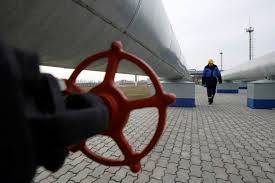Ukraine Ends Transit of Russian Gas to EU: A Geopolitical Shift in Energy Dynamics
On January 1, 2025, Ukraine officially halted the transit of Russian natural gas to the European Union (EU), marking a historic turning point in Europe’s energy landscape. This decision, influenced by political, economic, and security considerations, underscores the shifting dynamics of global energy markets and the ongoing tensions between Ukraine and Russia.
A Decade-Long Dependency Comes to an End
For decades, Ukraine served as a critical transit hub for Russian gas flowing to Europe. At its peak, nearly 40% of the EU’s natural gas imports from Russia were transported via Ukrainian pipelines. However, this arrangement has been fraught with disputes over pricing, unpaid debts, and allegations of energy weaponization by Russia.
The decision to end gas transit aligns with Ukraine’s broader efforts to sever economic ties with Russia following the annexation of Crimea in 2014 and the full-scale invasion of Ukraine in 2022. Ukrainian President Volodymyr Zelenskyy emphasized that the move was a matter of national security and sovereignty. “Ukraine will no longer facilitate the energy strategy of a nation that continues to wage war against us,†he declared in a televised address.
Implications for the European Union
The cessation of Russian gas transit via Ukraine has profound implications for the EU, which has been working to diversify its energy sources since the start of the Russia-Ukraine conflict. While Russian gas constituted 40% of EU imports before 2022, this figure had already dropped significantly by 2024, thanks to investments in renewable energy, liquefied natural gas (LNG) terminals, and alternative pipeline routes.
The EU is now relying more heavily on LNG imports from the United States, Qatar, and Australia, as well as pipeline gas from Norway, Azerbaijan, and North Africa. The completion of the Southern Gas Corridor and expansion of LNG facilities in countries like Poland and Spain have helped mitigate the impact of the transit cutoff.
However, some countries, particularly in Central and Eastern Europe, remain vulnerable. Nations like Hungary and Slovakia, which historically depended on Ukrainian transit routes, face potential supply disruptions and higher energy prices. EU officials have emphasized the need for solidarity and coordinated energy policies to address these challenges.
Russia’s Strategy and Response
For Russia, the end of Ukrainian transit represents both a challenge and an opportunity. In recent years, Moscow has sought to bypass Ukraine through alternative pipeline projects like Nord Stream 1 and 2 (to Germany) and TurkStream (to Turkey and Southern Europe). However, the sabotage of Nord Stream pipelines in 2022 and the geopolitical isolation of Russia have limited these options.
Russia’s state-owned gas giant, Gazprom, has downplayed the significance of the transit halt, citing its pivot to Asian markets, particularly China. The Power of Siberia pipeline, which delivers gas to China, is seen as a cornerstone of Russia’s energy strategy. Nevertheless, analysts argue that the European market is irreplaceable in terms of revenue, and losing it further isolates Russia economically.
Ukraine’s Role in the Energy Transition
Ukraine’s decision to end Russian gas transit is also part of its broader strategy to integrate with European energy markets. Kyiv has been investing in renewable energy, developing its own gas reserves, and upgrading its energy infrastructure to align with EU standards.
Ukraine aims to transform its extensive pipeline network, once a symbol of dependency on Russian gas, into a system that supports the EU’s green energy goals. Plans are underway to repurpose sections of the pipeline for hydrogen transportation, a key component of Europe’s carbon-neutral ambitions.
A Long-Term Geopolitical Shift
The end of Russian gas transit through Ukraine signifies a deeper geopolitical shift in Europe’s energy dynamics. It reflects the EU’s determination to reduce its reliance on Russian energy and underscores Ukraine’s resilience and strategic realignment toward the West.
While the immediate effects of the transit cutoff are being felt, the long-term implications will unfold over years. The EU’s ability to maintain energy security amid these changes will depend on continued investments in infrastructure, renewables, and regional cooperation.
For Ukraine, the decision marks a bold step toward self-determination and economic independence, despite the ongoing challenges posed by war and reconstruction. For Russia, it represents another blow to its influence in Europe, forcing Moscow to accelerate its pivot to other markets.
Ultimately, the end of Russian gas transit through Ukraine is not just an energy story but a reflection of the broader geopolitical realignments shaping the 21st century. As the world grapples with the dual crises of war and climate change, the energy sector remains at the heart of both conflict and collaboration.




No comments yet
Be the first to share your thoughts!